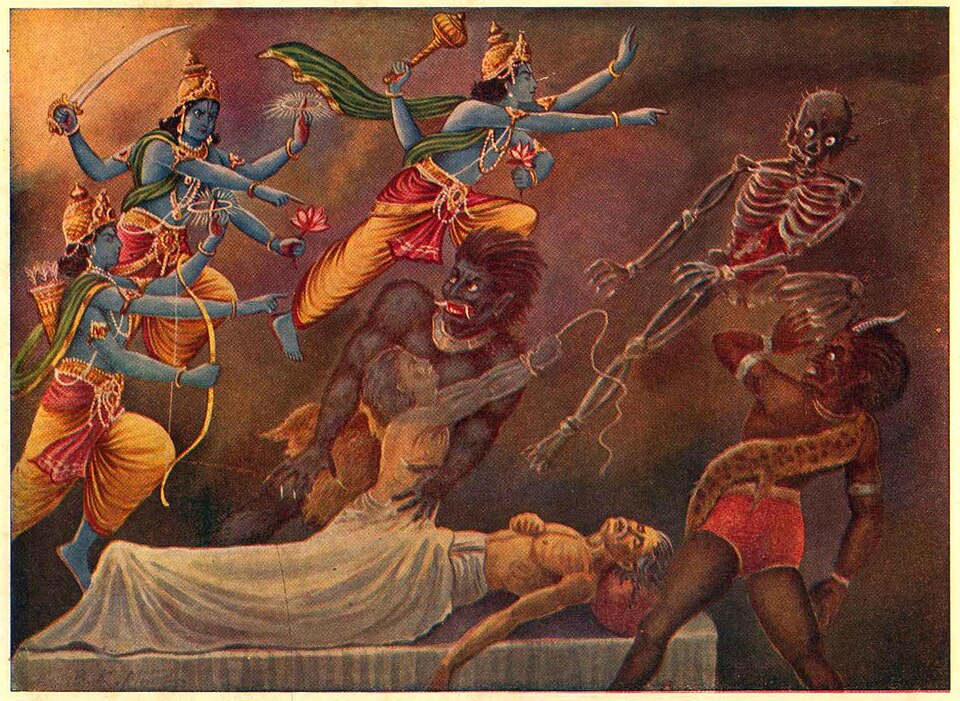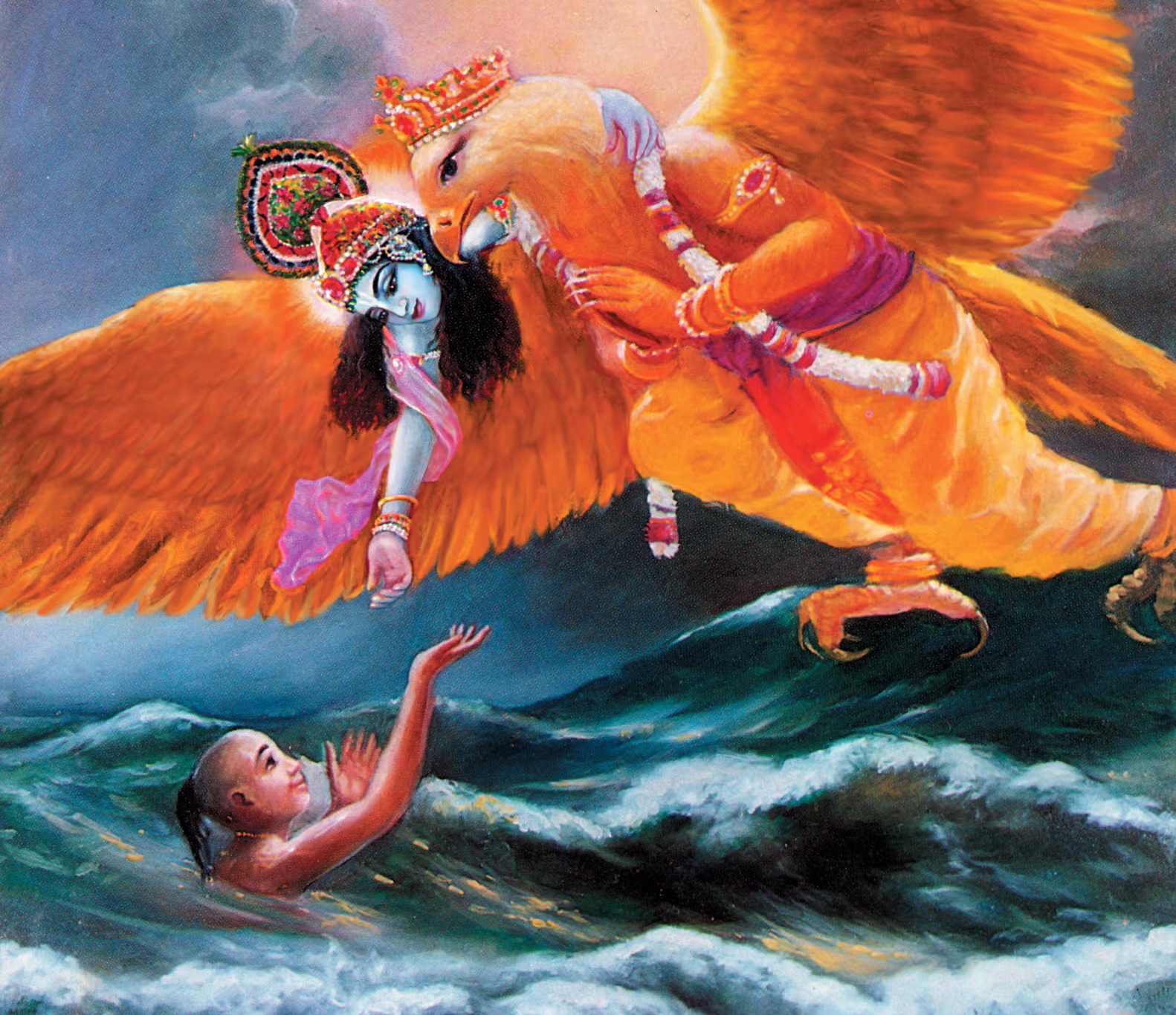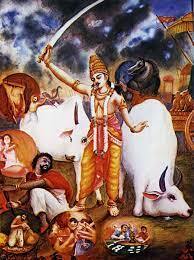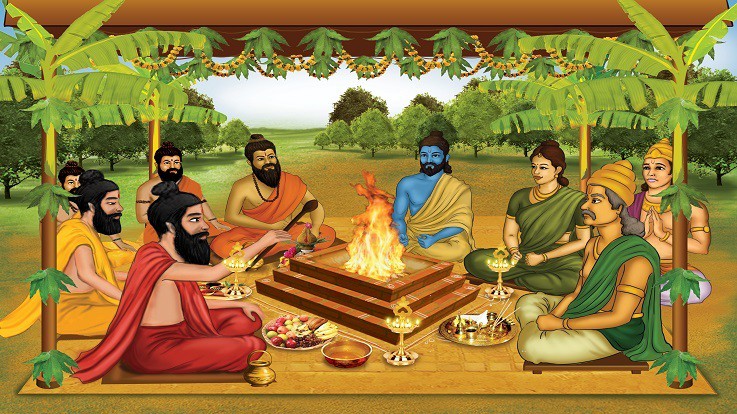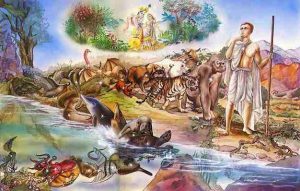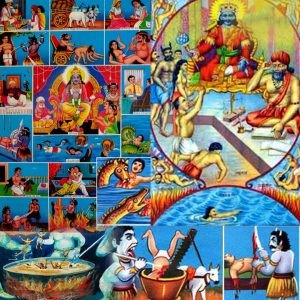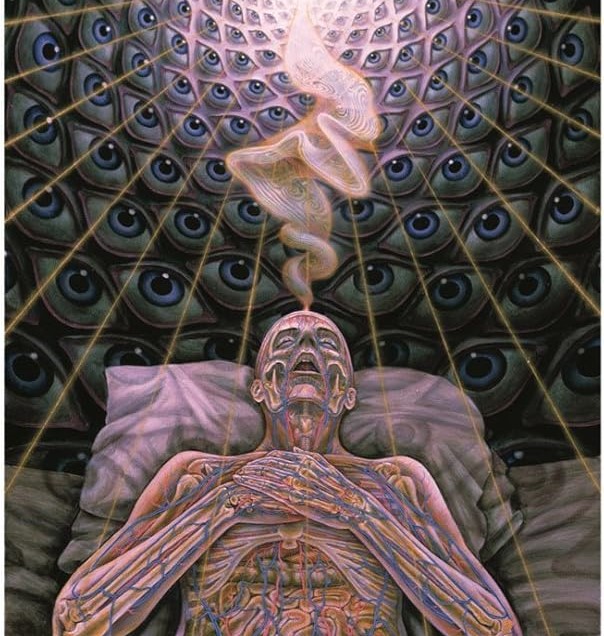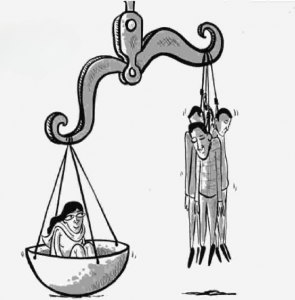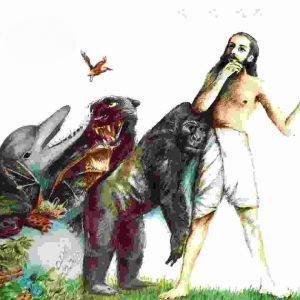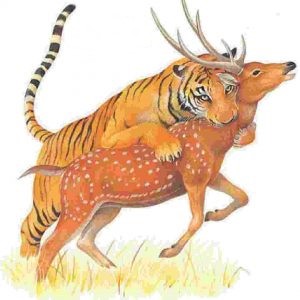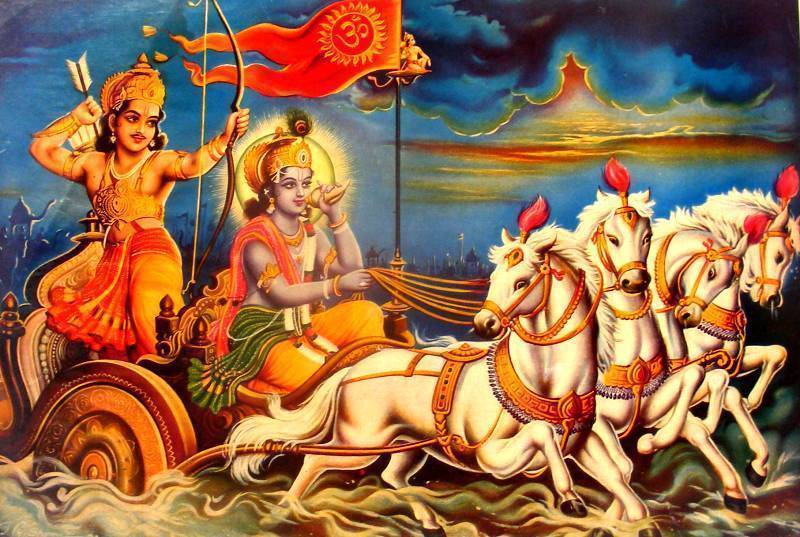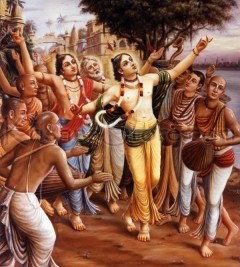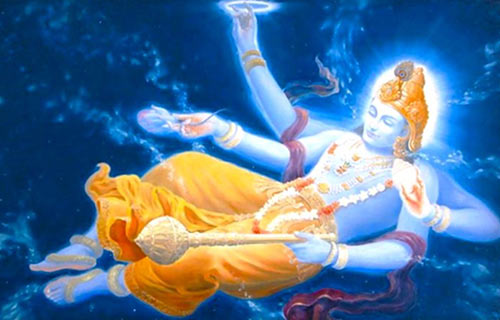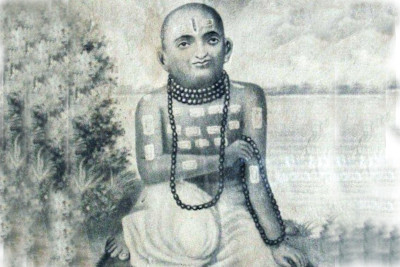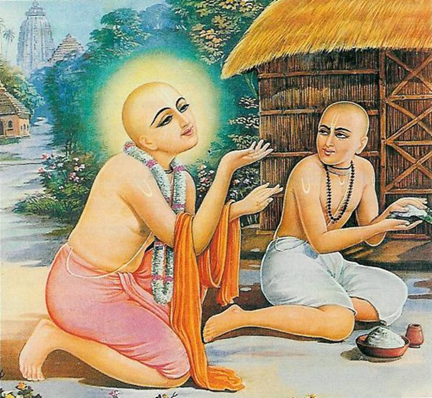The process of punishment in the abode of Yamaraja.
Every living entity is covered by a subtle and gross body. The subtle body is the covering of mind, ego, intelligence, and consciousness. It is said in the scriptures that the constables of Yamaraja cover the subtle body of the culprit and take him to the abode of Yamaraja to be punished in a way that he is able to tolerate. He does not die from this punishment because if he died, then who would suffer the punishment? It is not the business of the constables of Yamaraja to put one to death. In fact, it is not possible to kill a living entity because factually he is eternal; he simply has to suffer the consequences of his activities of sense gratification.
The process of punishment is explained in the Caitanya-caritamrta. Formerly the king’s men would take a criminal in a boat in the middle of the river. They would dunk him by grasping a bunch of his hair and thrusting him completely underwater, and when he was almost suffocated, the king’s constables would take him out of the water and allow him to breathe for some time, and then they would again dunk him in the water to suffocate. This sort of punishment is inflicted upon the forgotten soul by Yamaraja, as will be described in the following verses.
While passing from this planet to the planet of Yamaraja, the culprit arrested by Yamaraja’s constables meets many dogs, which bark and bite just to remind him of his criminal activities of sense gratification. It is said in Bhagavad-gita that one becomes almost blind and is bereft of all sense when he is infuriated by the desire for sense gratification. He forgets everything. Kamais tais tair hrta jnanah. One is bereft of all intelligence when he is too attracted by sense gratification, and he forgets that he has to suffer the consequences also. Here the chance for recounting his activities of sense gratification is given by the dogs engaged by Yamaraja. While we live in the gross body, such activities of sense gratification are encouraged even by modern government regulations. In every state all over the world, such activities are encouraged by the government in the form of birth control. Women are supplied pills, and they are allowed to go to a clinical laboratory to get assistance for abortions. This is going on as a result of sense gratification. Actually, sex life is meant for begetting a good child, but because people have no control over the senses and there is no institution to train them to control the senses, the poor fellows fall victim to the criminal offenses of sense gratification, and they are punished after death as described in these pages of Srimad-Bhagavatam.
Under the scorching sun, the criminal has to pass through roads of hot sand with forest fires on both sides. He is whipped on the back by the constables because of his inability to walk, and he is afflicted by hunger and thirst, but unfortunately, there is no drinking water, no shelter and no place for rest on the road. Sometimes the criminal falls down in fatigue, and sometimes he becomes unconscious, but he is forced to rise again. In this way, he is very quickly brought to the presence of Yamaraja.
Thus the criminal has to pass ninety-nine thousand yojanas within two or three moments, and then he is at once engaged in the torturous punishment which he is destined to suffer. One yojana is calculated to be eight miles, and he has to pass along a road which is therefore as much as 792,000 miles. Such a long distance is passed over within a few moments only. The subtle body is covered by the constables so that the living entity can pass such a long distance quickly and at the same time tolerate the suffering. This covering, although material, is of such fine elements that material scientists cannot discover what the coverings are made of. To pass 792,000 miles within a few moments seems wonderful to the modern space travelers. They have so far traveled at a speed of 18,000 miles per hour, but here we see that a criminal passes 792,000 miles within a few seconds only, although the process is not spiritual but material.
In the hell the criminal has to eat his own flesh, burning with fire, or allow others like himself who are present there to eat. In the last great war, people in concentration camps sometimes ate their own stool, so there is no wonder that in the Yamasadana, the abode of Yamaraja, one who had a very enjoyable life eating others’ flesh has to eat his own flesh. His entrails are pulled out by the hounds and vultures of hell, even though he is still alive to see it, and he is subjected to torment by serpents, scorpions, gnats and other creatures that bite him. Next, his limbs are lopped off and torn asunder by elephants. He is hurled down from hilltops, and he is also held captive either in water or in a cave.
The mistake of modern civilization is that man does not believe in the next life. But whether he believes or not, the next life is there, and one has to suffer if one does not lead a responsible life in terms of the injunctions of authoritative scriptures like the Vedas and Puranas. Species lower than human beings are not responsible for their actions because they are made to act in a certain way, but in the developed life of human consciousness, if one is not responsible for his activities, then he is sure to get a hellish life, as described herein.
Source: A.C. Bhaktivedanta Swami Prabhupada (2014 edition), “Srimad Bhagavatam”, Third Canto, Chapter 30 – Text 20 to 27 & Text 30

